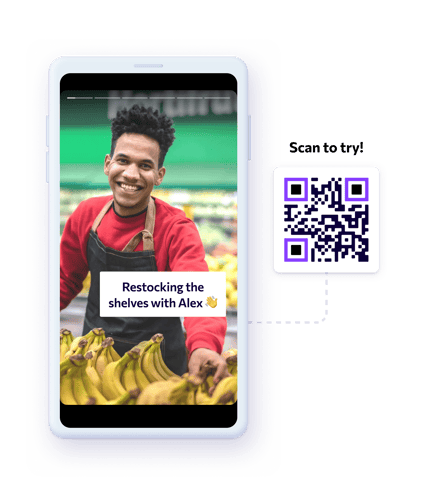Unlocking the Power of Social Learning for Frontline Workforce Training
TABLE OF CONTENTS
In today's fast-paced work environment, L&D professionals face the formidable task of training frontline teams effectively. Whether you're in retail, hospitality, or another industry, the key to successful training lies in adapting to the learning preferences and needs of your workforce.
Enter social learning – a dynamic approach that leverages teamwork, collaboration, and social media-style engagement to empower your frontline workforce. In this blog, we'll delve into what social learning is, how to implement it, and why it's the secret sauce for training success in the modern workplace.
What is social learning theory?
Social Learning Definition
Social learning is a theory with origins in the work of behavioral psychologist B.F. Skinner, more recently expanded on by Albert Bandura in his work on observational learning and studying how children learn from others.
Bandura proposed 5 steps to any learning process - observation of an action and attention while observing, retention of information observed, reproduction of the observed behavior, with the process bookended by motivation, the key ingredient required for a learner to attempt to mimic a behavior in the first place.
Most human behavior is learned observationally through modelling from others.
- Albert Bandura
At its core, social learning is a process where individuals learn by observing, imitating, and interacting with their peers.
Modern Social Learning Strategies
Though social learning is an age-old concept, it has gained new life in the digital age. Here's how making use of social learning can benefit your frontline teams:
-
Team Based Learning
Frontline teams often work closely together, making team-based learning an ideal approach. By grouping employees into cohorts based on their roles or departments, you create a supportive environment for learning. This fosters a sense of camaraderie, encourages knowledge sharing, and boosts overall team performance.
When you show other employees what their peer, as in another employee, has done, that is the best case study or training example that you can give them. They're not being told what to do.They're being shared an example of what the right thing to do is.
- Shep Hyken, CX Speaker & Expert
-
Mobile social learning
Frontline workers are accustomed to consuming content on social media platforms like Instagram and TikTok. Why not leverage this familiarity in your training programs? Create bite-sized, engaging lessons presented in a format similar to these platforms. Use short videos, interactive quizzes, and step-by-step tutorials to keep learners engaged and motivated.
Implementing Social Learning in the Workplace
Now that we understand the benefits of social learning, let's explore how to implement it effectively for your frontline workforce:
-
Identify Learning Cohorts
Start by categorizing your workforce into relevant learning cohorts. For example, in a retail setting, you might have cohorts for cashiers, stock clerks, and sales associates. In hospitality, think about cohorts for housekeeping, front desk, and restaurant staff. This segmentation will help tailor your training content to their specific needs.
-
Create Engaging Content
Harness the power of multimedia to create engaging content. Craft short, informative videos or image based lessons that demonstrate tasks or procedures. Encourage participation by incorporating interactive elements like quizzes and polls. Remember, the goal is to make learning feel more like a fun and social experience.
It's really important to enable the people who are closest to their customers. Democratizing content creation - enabling people at the global and regional level to create content that's helpful for their audiences.
- Andrew Dinh, Uber

An example of democratized content creation through eduMe 'Guides'
-
Encourage Peer-Led Learning
Facilitate peer-led learning where team members take the reins in creating valuable learning content for their peers. Empower your employees to share their expertise, experiences, and insights, turning them into teachers and mentors.
This collaborative approach not only enhances learning but also strengthens bonds within the team as individuals become both learners and contributors to their colleagues' growth.
Guides on eduMe are created by people like me. They're quick, entertaining, easy to digest. The best way to build Guides is having our own employees do so with guidance from us. When you get people involved in building the culture around them and let them know their voice is heard - they’ll stay
- Theresa Micheli, Pet Supermarket
Benefits of Social Learning in the Workplace
Now that we've discussed how to implement social learning, let's take a closer look at the advantages it offers:
-
Increased Engagement
Social learning makes training more interactive and enjoyable, boosting learner engagement and knowledge retention.
-
Real-World Application
By encouraging peer interaction and problem-solving, social learning promotes the practical application of knowledge in the workplace.
-
Scalability
With digital platforms, you can easily scale your social learning initiatives to accommodate a growing workforce or changing needs.
-
Cost-Efficiency
Compared to traditional training methods, social learning can be more cost-effective, reducing the need for extensive in-person training sessions.
The takeaway
Social learning is not just a buzzword; it's a powerful strategy that can revolutionize frontline workforce training.
By embracing team-based learning, leveraging social media-style content, and fostering collaboration, you can create a dynamic and engaging learning experience for your employees. In doing so, you'll not only enhance their skills but also drive improved performance and job satisfaction – a win-win for both your organization and your frontline teams.
Ready to supercharge your frontline workforce training with a social learning platform? Explore how eduMe can help you achieve training excellence in the digital age, and join companies like Uber and Pet Supermarket in the social learning revolution today. 👇
Join 10,000+ frontline leaders
Subscribe to ‘Training the Frontline’ and get weekly insights sent straight to your inbox.


